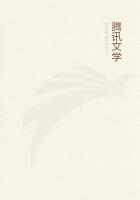
第4章
If I was a very good boy and took pains, and carefully mixed in the best society, I might hope in the course of years to succeed to my father's brougham, fashionably-situated house, and clumsy and expensive footman. There was a prospect for a lad of spirit, with the blood of the early Malkinshaws (who were Rogues of great capacity and distinction in the feudal times) coursing adventurous through every vein! I look back on my career, and when I remember the patience with which I accepted a medical destiny, I appear to myself in the light of a hero. Nay, I even went beyond the passive virtue of accepting my destiny--Iactually studied, I made the acquaintance of the skeleton, I was on friendly terms with the muscular system, and the mysteries of Physiology dropped in on me in the kindest manner whenever they had an evening to spare.
Even this was not the worst of it. I disliked the abstruse studies of my new profession; but I absolutely hated the diurnal slavery of qualifying myself, in a social point of view, for future success in it. My fond medical parent insisted on introducing me to his whole connection. I went round visiting in the neat brougham--with a stethoscope and medical review in the front-pocket, with Doctor Softly by my side, keeping his face well in view at the window--to canvass for patients, in the character of my father's hopeful successor. Never have I been so ill at ease in prison, as I was in that carriage. I have felt more at home in the dock (such is the natural depravity and perversity of my disposition) than ever I felt in the drawing-rooms of my father's distinguished patrons and respectable friends. Nor did my miseries end with the morning calls. I was commanded to attend all dinner-parties, and to make myself agreeable at all balls. The dinners were the worst trial.
Sometimes, indeed, we contrived to get ourselves asked to the houses of high and mighty entertainers, where we ate the finest French dishes and drank the oldest vintages, and fortified ourselves sensibly and snugly in that way against the frigidity of the company. Of these repasts I have no hard words to say; it is of the dinners we gave ourselves, and of the dinners which people in our rank of life gave to us, that I now bitterly complain.
Have you ever observed the remarkable adherence to set forms of speech which characterizes the talkers of arrant nonsense!
Precisely the same sheepish following of one given example distinguishes the ordering of genteel dinners.
When we gave a dinner at home, we had gravy soup, turbot and lobster-sauce, haunch of mutton, boiled fowls and tongue, lukewarm oyster-patties and sticky curry for side-dishes; wild duck, cabinet-pudding, jelly, cream and tartlets. All excellent things, except when you have to eat them continually. We lived upon them entirely in the season. Every one of our hospitable friends gave us a return dinner, which was a perfect copy of ours--just as ours was a perfect copy of theirs, last year. They boiled what we boiled, and we roasted what they roasted. We none of us ever changed the succession of the courses--or made more or less of them--or altered the position of the fowls opposite the mistress and the haunch opposite the master. My stomach used to quail within me, in those times, when the tureen was taken off and the inevitable gravy-soup smell renewed its daily acquaintance with my nostrils, and warned me of the persistent eatable formalities that were certain to follow. I suppose that honest people, who have known what it is to get no dinner (being a Rogue, I have myself never wanted for one), have gone through some very acute suffering under that privation. It may be some consolation to them to know that, next to absolute starvation, the same company-dinner, every day, is one of the hardest trials that assail human endurance. I date my first serious determination to throw over the medical profession at the earliest convenient opportunity, from the second season's series of dinners at which my aspirations, as a rising physician, unavoidably and regularly condemned me to be present.